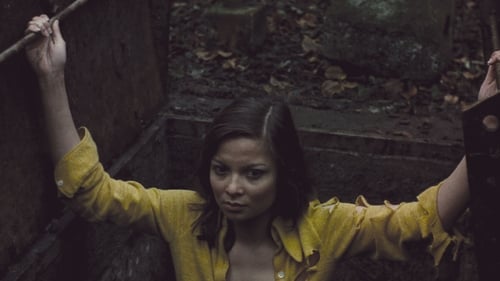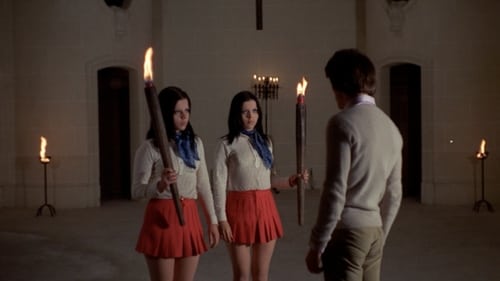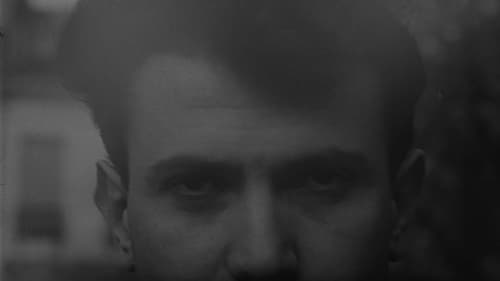
Maurice Lemaître
출생 : 1926-04-23, Paris, France
약력
Maurice Lemaître (born April 23rd 1926 in Paris) is an artist, writer and French poet. He is known to be one of the main figures of lettrisme, a movement started in the 1950s.
Lemaître was educated at the School of Arts and Crafts and Public Works. After taking part in the Liberation of Paris, he began his philosophy degree at the Sorbonne.
In 1948, he began his career as a journalist and wrote for the newspaper of the libertarian movement. A year later, he met Isidore Isou and immediately became interested in his political and avant-garde thoughts.
In 1950, Lemaître becomes very invested in the Lettrist group and created in the same year the "Youth Front", a political journal; while simultaneously creating a literary and pictorial magazine, entitled "Ur," which remains as "The Minotaur" of lettrism. Since his literary creations, Lemaître has continued to develop various fields within the Lettrist movement: poetry, theater, dance, novel, painting, photography, film, economy, psychopathology and psychotherapy . Despite his dedication to the movement, since 2000, Lemaître distanced himself from the movement and is now relatively isolated from the main group.

Lui-même

Himself
Experimental filmmaker Pip Chodorov traces the course of experimental film in America, taking the very personal point of view of someone who grew up as part of the experimental film community.

A young woman inherits the house of Jean Michel but she is haunted by strange dreams and numbers. She has no idea that this is the beginning of the 'the night of clocks', which opened for those who have sinned, the dead which are not dead...

Director
Ganeden, in Hebrew, signifies the «Garden of Pleasures", paradise, Eden. Our images of an imaginary journey, in this enchanting place, this place, according to the author, is an original reflection on the theme of travel, that the filmmaker sees, not as a tiring and vain disturbance, amongst the illusions of reality, which are sometimes dangerous, but as a movement, an action, an undertaking, an adventure.

Director
A chronicle of the fantasies and dream of women in avant-garde contemporary cinema. The faces and bodies of new women haunt the paths and alleyways of avant-garde cinema.

Director
An invitation to travel, one of the main themes of Lemaître, and a genuine manifestation of film Lettrism

Director
Excerpt from the film's soundtrack: - Hélène Richol: Why do you call your film "Fin de tournage"? - Maurice Lemaître: First of all because most of my films have a title relevant to the cinema: ever since "Le film est déjà commencé ?", "Votre Film", etc. (...) And then because when I thought of doing this film, I was very depressed... not in good shape... And I thought that this would be my last film.

Director
1976-1989, 24 min

Director
The "Films Imaginaires" are made up of only texts, filmed in cardboard boxes for the screen, of various works already shown to the public at the time, and which have been printed here or there, then gathered in the larger edition of my "Œuvres de Cinéma". The simple passage into photograms, then into the projection of these texts, with sound, transforms these "films" into another kind of film creation, even more advanced.

Director
“The film you are about to see now will not be projected onto the sky, as Maurice Lemaître’s film, UN SOIR AU CINÉMA, was in part in the 1960s during a performance in the gardens of the American Center, Boulevard Raspail, because it is made of transparent film, from beginning to end. And the image is precisely the projection of all the dust, scratches and accidents of all kinds whose transparency is altered, like so many stars and galaxies of possible images.” –Maurice Lemaître

Director
Documentary about notorious actor/director Erich Von Stroheim.

Director
For a long time now, we have been seeing outrageous attempts at tackling the 'woman problem' (and the 'man problem') by pretentious and old-fashioned 'professors' or 'revolu-tionaries,' related to the Nazis or Stalinists, who have just as outrage-ously exalted the proletariat, race or nationality, leading to racist and imperialist crimes. Such excessive behavior can only lead to the exploita-tion and destruction of the very gender concerned. In any case, the basic components of simple love and simple friendship (and a fortiori of Super-Love and Super-Friendship), that we have explored in depth (as evoked in my film, What is Love?), are still so poorly understood today by our contemporaries that even those who claim to be happily experiencing these run the risk of being quickly proven wrong by Life itself."

Director
1978, 15 min 30

Director

Director

Director
What is film?
The spectator will be able to imagine all possible Westerns and anti-Westerns.

Director

Director

Director

Director
50 good films

Director

Director

Director

Dialogue
친구의 결혼피로연에서 우연히 만난 젊은 커플은 묘지 근처에서 자전거로 하이킹을 하다가 호기심차 방대한 규모의 묘지 안으로 들어가기로 결심한다. 서로에게 호감을 가진 남녀는 지하 납골당에서 시간가는줄 모를 정도로 사랑을 나누다가 밖이 어두워진것을 깨닫고 밖으로 나가기로 한다. 하지만 묘지를 관리하는 노파는 폐장시간이 되자 묘지의 문을 잠궈버리고 떠나버리고 묘지안은 칠흙같은 어둠에 휩싸인다. 출구를 찾아 묘지를 정체없이 헤메이지만 마음만 조급한 그들의 눈에는 그 어디에도 출구가 보이지가 않는다. 소나기를 비해 들어간 조그만 건물에도 온통 어린 유골과 뼛조각들뿐이다. 두 커플은 서서히 밀려오는 공포에 휩싸인다. 온순했던 여인은 점점 좌불안석 과격해지며 광기를 보이기 시작하고 갑자기 알 수 없는 시를 읆조리거나 기이한 행동을 보이기 시작하는데...

Director

Georges Radamante
A young man falls in love with a beautiful woman being chased by sinister masked figures at night. He tries to track her down, and learns she's being held captive by his father and colleagues who believe she's a vampire.

Director

Director

Writer
This film is a supertemporal oeuvre. The support of the audience's participations is constitued by an image, which has varied several times during the course of many a projection. A projection by Maurice Lemaître, himself, in the soundtrack, clarifies the function of the session and finishes on a challenge thrown to the room.

Director
This film is a supertemporal oeuvre. The support of the audience's participations is constitued by an image, which has varied several times during the course of many a projection. A projection by Maurice Lemaître, himself, in the soundtrack, clarifies the function of the session and finishes on a challenge thrown to the room.

Director

Director
Maurice Lemaître had the ambition to make a really creative film about the revolt of May 68. For this, he did not renounce any of his filmic audacities and he managed to plunge into this new thematic dimension the cinematographic inventions put in In its previous achievements.

Director
This film, first titled La poubelle du labo (The Lab Trashcan), and after L'Enfer du cinéma (Cinema's Hell), has been projected for the very first time in September 1968 at the French Cinémathèque. It can be considered as the cinematographic equivalent of Tristan Tzara's method on how to make a dadaist poem by putting words in a bag, and it mostly rises from Isidore Isou's film enthusiasm. The film has been made in fact out of elements of film strips found in the trashcan of a film development laboratory, that have been subsequently taped together bit by bit following the exact order they were originally gathered.

Director

Director
1968, 26 min

Director

Director

Director

Director

Director

Director
“A pink moving screen will stand at the entrance to the theatre, in the night. One hour before the screening a projectionist will show Griffith’s Intolerance on this screen. The start of the film will be announced at 8.30 but no one will enter before 9.30. During these 60 minutes of waiting, people on the first floor of the building will shake out very dusty carpets, and someone else will throw ice water on the heads of those spectators waiting for the screening. Some actors who have infiltrated the crowd will insult other actors on the first floor. At this moment only, and to stop the beginning of a scandal, the doors of the theatre will open…”

이시도르 이주가 만든 실험영화 "영원과 욕설에 대한 논고"는 레트리즘 영화선언문을 이룬다. 이주는 관객을 속이는 영화 관습을 부정하며 영상과 음향이 일치하지 않는 불일치 영화에 대한 구상을 비롯한 몇 가지 새로운 생각을 제시했다. 또한 필름 자체에 스크래치를 내거나 의도적으로 색을 바래게 만드는 '손상 기술'도 고안했다. 1951년 칸느 영화제에서 격렬한 논란을 일으킨 이 영화는 후에 미국에 소개되어 아방가르드 영화감독 스탠 브래키지에게 영향을 주게 된다. 장 이시도르 이주는 단편소설, 시와 에세이를 비롯한 많은 작품을 출간한 작가였다. 또한 레트리즘 운동의 창시자이기도 했다. 이주는 글을 쓰고 영화를 만들고 사진을 찍고 음악을 만들었으며 영화 연기를 하기도 했다. 이주가 "영화에 맞선 반란"을 언급한 이 작품에서 그는 영화에서 무엇이 잘못된 것이며 그가 생각하기에 영화란 무엇으로 구성되어야 하는 것인지 예를 보여주려 했다. 스탠 브래키지는 이 영화를 수 차례 보고 자신이 강의하는 수업에서 보여주면서 "영원과 욕설에 관한 논고"는 "지극히 형식적이고 정제되어 있으며 균형 잡힌 작품"이라 평했다. 이 영화가 예술적인 표현을 대변하는지 아닌지는 관객 판단의 몫으로 남게 될 것이다. 장 콕토가 "영원과 욕설에 관한 논고"는 도약의 발판인가? 혹은 회피에 불과한가" 라고 물었듯이 말이다. 50년 내에 우리는 이에 대한 답을 알게 될 것이다. 결국 바그너가 어떻게 물러났는지를 기억해야 할 것이다. 오늘날 그의 분노에 아무도 맞서지 않는다. 이주의 양식이 유행하게 되는 날이 오게 될 것이다. 그 누가 알랴? "영원과 욕설에 대한 논고" 는 칸느 영화제에서 처음 상영되었는데 소요를 불러일으켰고 호스가 장내에 투입되어야만 했다. 이 영화는 미국 샌프란시스코 미술관 예술영화 상영관에서 시사회를 가졌고 또 한 번 소요사태를 불러일으켰다. 브래키지와 로버트 던컨을 비롯한 다른 예술가들은 로마 카톨릭 사제가 관객에게 이 영화가 프랑스 데카당스에 불과하다 경고하기 위해 불려

Director

Director

Director





